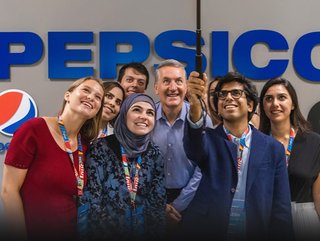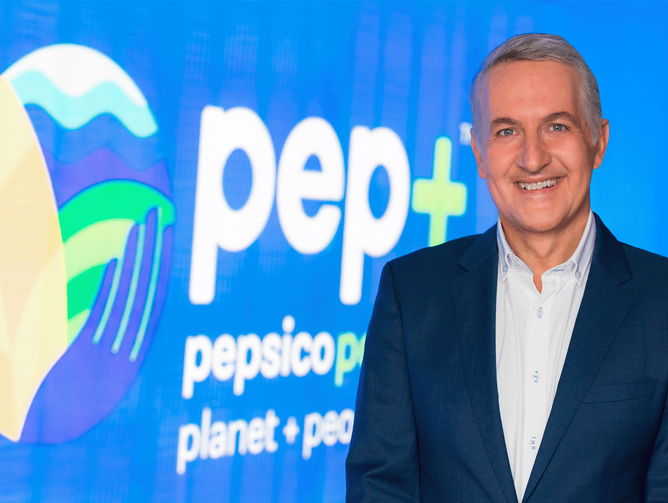PepsiCo’s Data-Driven Approach to Diversity and Inclusion

Rolling out a DEI strategy across any company is no small feat.
But when you’re the world’s second-largest food and beverage company with 310,000 employees and 23 brands operating in more than 200 countries, the scale of that effort is monumental.
For PepsiCo, efforts in diversity, equity and inclusion (DEI) are nothing new with a strategy now deeply embedded into company culture.
The multinational's diversity goals originally set in 2016 have been either achieved or are on track with gender parity at 44% and trending toward the goal of 50% by 2025.
And its DE&I agenda centres around creating a space for everyone to thrive and be their best selves – and that means being intentional about inclusion.
“The ultimate objective is to become a company that’s focused on equity and genuinely inclusive,’ says Ramon Laguarta, Chairman and CEO.

PepsiCo’s Global Data-Driven Approach to DEI
Which is why PepsiCo takes a data-driven approach to DEI, measuring its employees frequently, including sentiment, and gathering data from the company’s multiple Employee Resource Groups (ERGs).
Acting on this data, the US$86.39 billion revenue business has rolled out numerous targeted initiatives and programmes over the years, from the delivery of thousands of internal development programmes within PepsiCo University, to mental health programmes specifically aimed at certain cohorts.
Among its most successful data-driven initiatives, PepsiCo rolled out an global self-ID campaign two years ago.
Designed for those with disabilities, for LGBTQ+, and for veterans, the campaign is all about PepsiCo understanding the makeup of its workforce – in order to then make its programming more relevant, compelling and inclusive.
Recently recognised as a DEI initiative that has successfully scaled, PepsiCo’s LGBTQI+ global self-ID campaign was chosen by the World Economic Forum as one of just seven DEI Lighthouses for 2024 – an initiative the WEF says was successful in meeting predetermined impact benchmarks.
Mobilising Employees to Gather Data and Advance DEI
In identifying that one of the key barriers to promoting LGBTQI+ inclusion stems from lack of data available about this under-represented community, PepsiCo set about obtaining that data.
While the company has had a robust data collection tool in place for years, tracking data on representation of women, racial and ethnic minorities, persons with disabilities and veteran status, doing so with other select identities such as LGBTQI+ has been more complicated due to legal constraints and stigma.
To tackle this, PepsiCo expanded its self-ID offering to include sexual orientation and gender identity, where legally permitted, and rolled-out an innovative global self-ID campaign.
The New York-headquartered company leveraged tech tools and trainings to incentivise self-ID across the entire business globally, involving its LGBTQI+ ERG for feedback and advice.
The campaign, which included internal training on the importance of self-ID and pronoun disclosure, was successful with 12,475 employees across 33 countries voluntarily self-identifying their sexual orientation or gender identity.
While 63,000 employees across 71 countries updated how their name is displayed to their preferred name; and 7,400 employees across 36 countries now list their pronouns.
What’s more, in capturing the intersectional data of its LGBTQI+ workforce, PepsiCo argue they can advance their DEI goals.
As well as tracking the recruitment, retention and development of LGBTQ+ individuals more effectively, to ensure a diverse workforce and teams, PepsiCo can also develop more informed, impactful and sustainable DEI programming and benefits that account for their needs and measure and increase engagement – ensuring inclusivity.
According to the WEF, buy-in from PepsiCo’s senior leadership team has been crucial in the success of the programme – with local HR leaders in each region responsible for driving results on the campaigns and trained to implement the practice with all associates.
Starting in 2024, PepsiCo is sharing high-level anonymised representation data with key sector HR leaders.
The global DEI team keeps track of self-ID usage in each country on an ongoing basis, which I tracked via a highly confidential and centralised process.
WEF describes PepsiCo’s effort as a “significant example of how to mobilise employees to gather data and thereby improve progress on DEI”.
******
Make sure you check out the latest edition of Sustainability Magazine and also sign up to our global conference series - Sustainability LIVE 2024
******
Sustainability Magazine is a BizClik brand






